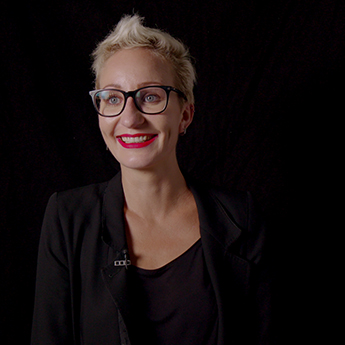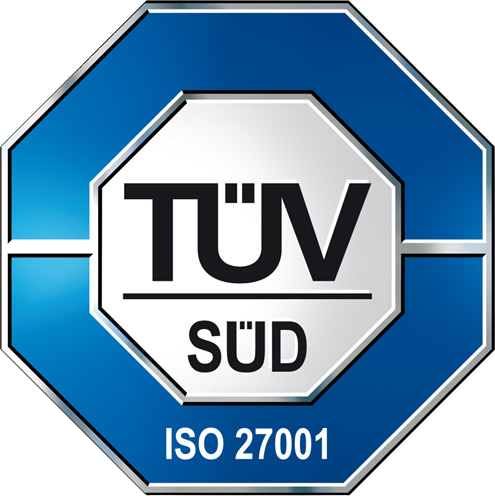Main content:
Interview with Prof. Miriam M. Unterlass
How can you expect others to believe in your ideas if you don't do so yourself?! "I am convinced that innovations resulting from basic research have to be implemented by the inventor themselves. No-one else will do it," says Professor Miriam M. Unterlass, explaining why she established her own start-up. She and her team from TU Wien, the university of technology in Vienna, won the 2020 Austrian Patent Award for their clean method of producing plastics (just using hot water instead of toxic solvents).
"We killed two birds with one stone, as it were: the process is not only environmentally friendly, it also improves the physical properties," she explains. Nevertheless – she is certain – large chemical companies will want to see actual evidence that this innovation also has a commercial benefit. This proved to be the decisive factor in making Professor Unterlass establish her own start-up: "I think it's just fantastic – this method can help the world, and I believe that is a good thing."
From uni to start-up
However, the transition from university to start-up was not an easy one: "Because I came from a university background and was venturing into what was, for me, completely uncharted territory, it was a rocky road paved with difficulty," explains Professor Unterlass. "It all started with our first patent application. The research and transfer support team from the technical university got in touch with me and asked whether I wanted to take part in a training course for academic spin-offs. Since I love learning so much, I thought why not. At the end of a workshop that lasted several days, there was a pitch event where I had the opportunity to present my idea up on stage in front of a group of investors. There must have been 200 of them there on that evening. Afterwards I could hardly move because there were so many people in the room who kept stopping me and handing me their cards," she laughs. On the same evening, Professor Unterlass and her team took home one of the prizes for their hot water process.
A twist of fate that led to chemistry
Professor Unterlass originally wanted to study medieval history. But she found the requirements (learning Ancient Greek and Latin) too demanding: "People normally laugh when I tell them that, because everyone finds it funny that I didn't think of chemistry as difficult." In the end, things took quite a different turn anyway. She took her school-leaving exams in France and, since the general French qualifications were not recognised in Germany, she only had the option of choosing one of her specialist subjects to study at university: chemistry or geology. "The study of rocks seemed to be very limited to me, so I chose chemistry," she explains. "It all sort of happened by accident, as is the case for many people. And I like to be very honest about that because I think a lot of people assume that a career needs to be mapped out and all perfect, with everything on track. And in my experience that's simply not true."
The more diverse the team, the more innovative the work
Professor Unterlass now has three degrees in total – in chemistry, materials science and chemical engineering. She teaches at TU Wien and also works there as part of a large research group on sustainable production methods for high-performance materials. "It's great working in a large team because it increases the likelihood of working with different people. The more diverse the team, the more innovative the solutions and research that you can pursue. I think that's a really good thing," she explains. But working as part of a large team means that she is constantly up against challenges: "A bit of friction is helpful if you have differing opinions from a professional perspective or regarding the subject matter. Intensive discussions help to push things forwards. But it's important to learn that fierce debate is nothing personal. I always try to convey to my employees a sense of mutual respect and appreciation and that differences of opinion are absolutely OK." The team is already hard at work on new projects: "On top of plastics, we're currently very interested in colouring agents and pigments. I see a great deal of potential here because these kinds of substances can also be produced in an environmentally friendly way by means of hot water synthesis. And, generally speaking, what I find interesting are dual-use projects – in other words, using substances for more than one thing. Colouring agents themselves are beautiful, useful and suitable for multiple applications thanks to their electronic transitions."
Stereotypes are just nonsense!
As a woman who comes from a technological background herself, Professor Unterlass has a lot to say on this matter. She blames the stereotypes established in childhood for the consistently low proportion of women in technical professions: "To this day, we often hear that girls are good at languages and boys are good at maths. This already puts a sort of label on young people." She didn't have her own chemistry set as a child either. Instead – like many kids – she looked to adult role models for guidance when it came to her career: "There was a time when I wanted to be a teacher. And then I actually wanted to become an inventor because my dad is an inventor. He's an engineer. He studied electrical engineering and has lots of patents. I'm still jealous of him; when you search the name Unterlass in the patent search engines, his name always appears more often than mine," explains Professor Unterlass. She made the decision a long time ago to catch up with him. Nevertheless, she thinks it's important to start early to show children that they can do whatever they want. And Professor Unterlass is unequivocal about one thing: women are no worse or better at learning than men. "Be it in chemistry, physics or other engineering sciences, we're all just the same. And we all know nothing about these subjects before we start learning. When you study chemistry, you end up understanding chemistry," she says. And she is sure that women can make just as great a contribution in technology as men.
06. May 2021

